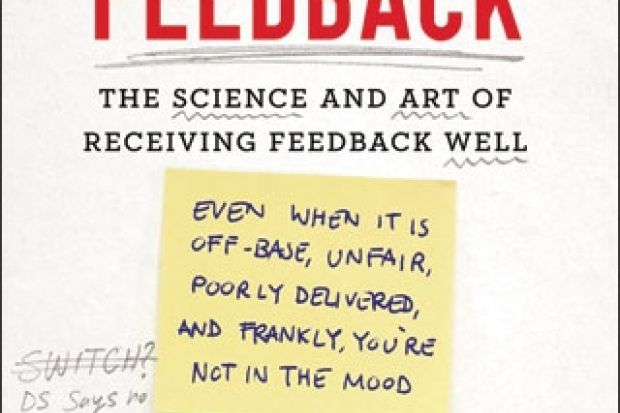I am a big fan of the BBC television comedy Outnumbered, which allows audience members to squirm as a suburban family clumsily navigates everyday life. One of my favourite moments is when Karen Brockman, the rather opinionated 11-year-old daughter, has been called into her headteacher’s office. Let me paint the scene for you. Karen has sent a lengthy dossier to the governing body criticising the school. It would be fair to say that the headteacher does not take Karen’s feedback well. Dripping with sarcasm, her response begins: “Well, Karen, I must congratulate you on a very thorough review of the school’s shortcomings. You’ve certainly saved Ofsted the bother of a visit. I particularly like this very helpful list of the rules you regard as ‘lame’. I wonder whether you would be kind enough to talk me through your findings?”
Within that rather beautifully crafted paragraph, we see many techniques, albeit subverted, that appear in a new book by Sheila Heen and Douglas Stone of the Harvard Negotiation Project. For readers not aware of this organisation, the HNP’s mission appears to be getting the workers of the world to play nicely together in the sandpit of life. And in 300-plus pages of colloquial anecdotes interspersed with popular science, Heen and Stone take us through things: separating appreciation, coaching and feedback; understanding your blind spots; disentangling what from who; assessing your temperament; cultivating a growth identity (apparently we all need one); deciding how good you have to be; navigating difficult conversations; and generally being terribly sporting about accepting criticism, both benign and malign.
Now don’t get me wrong – I think this is a worthy book that will get universities’ staff development departments very excited. I am sure they will wave it about during short courses, and lay it out on a table at the back along with other self-help books of its type, so that colleagues can peruse it during the coffee break. But something in this book practically screams at me, and it is the sound of double standards being applied. On the one hand, we have societal leaders stropping about, doing the exact opposite of all this as a method of getting ahead. Then we have their public and private sector handmaidens, both male and female, being encouraged to conform, tolerate and adapt. Those lower down the food chain are encouraged to think that if they can only do this well enough, then they will be happy and their professional lives will be fruitful. In this case, we see US-centric feedback processes being deployed as a kind of opium of the working masses. Try harder, these books say: otherwise any failure to progress will be entirely your own fault. Like many people, I am increasingly unhappy about this position, given all we know about racism, sexism, xenophobia, homophobia and all the other discriminatory practices that still secretly colour working life in the 21st century.
My irritation with the book’s essential philosophy grew as I turned the pages. It reminded me of the very many US authored parenting books I have read over the years, where anecdote is piled upon anecdote, with little snippets of research scattered to lend a kind of gravitas to the proceedings. Occasionally I became less irritated and even laughed, for example at page 49, where the authors highlight some truly pointless client feedback given to advertising agencies, such as “I like it, but can the snow look a little warmer?” Perhaps my laugh was a little bitter, as it reminded me of some of the more inane peer review comments made in response to my grant applications over the years. Another very thoughtful addition was the section on page 162 where the authors use a mocked-up Google search to demonstrate how easy it is to collapse all past and present negative criticism into one and assume it follows you about at all times, when of course it never does. These are very good additions that leaven the bread. However, on balance, unless you are a self-help junkie, this is not a book I would recommend ploughing through.
I am sure Karen Brockman’s headteacher would agree.
Thanks for the Feedback: The Science and Art of Receiving Feedback Well
By Sheila Heen and Douglas Stone
Portfolio, 368pp, £14.99
ISBN 9780670922611
Published 6 March 2014
Register to continue
Why register?
- Registration is free and only takes a moment
- Once registered, you can read 3 articles a month
- Sign up for our newsletter
Subscribe
Or subscribe for unlimited access to:
- Unlimited access to news, views, insights & reviews
- Digital editions
- Digital access to THE’s university and college rankings analysis
Already registered or a current subscriber?





